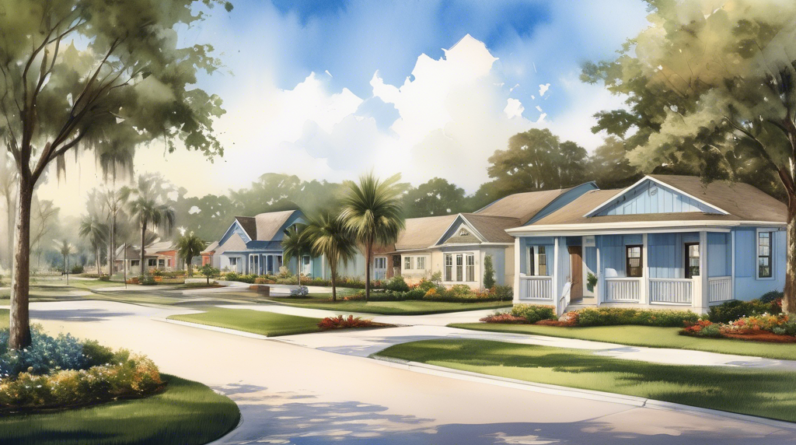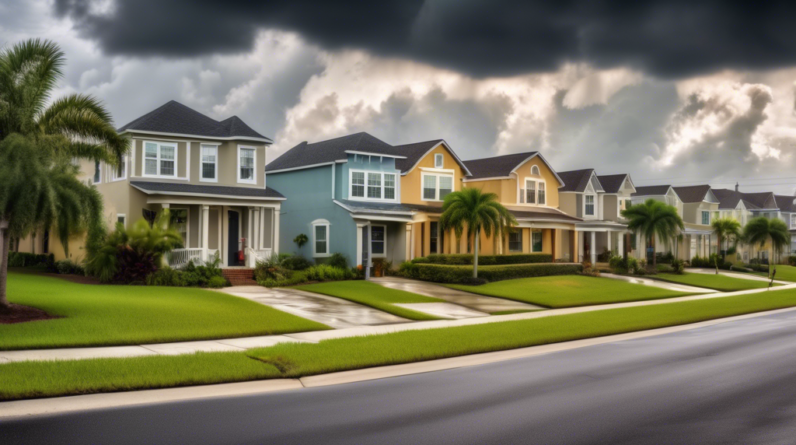Is Florida’s Housing Market Facing Challenges? Here’s What the Data Reveals
The housing market in Florida is experiencing a range of dynamics, with significant regional and sectoral variations. Amidst rising housing inventory, increasing foreclosures, and fluctuating home prices, the state’s market reveals a complex picture. Let’s delve into the key trends shaping Florida’s housing landscape.
Housing Inventory Increase
Florida has seen a substantial rise in housing inventory levels, with a year-over-year increase of 34%, the highest in the nation. This boom in available homes is particularly noticeable in sections of Southwest Florida, notably Cape Coral and Fort Myers. These areas were severely impacted by Hurricane Ian in September 2022, likely contributing to the surge in available properties as recovery and reconstruction efforts continue.
Foreclosure Trends
The state is also witnessing an uptick in home foreclosures. According to ATTOM data, cities such as Lakeland, Orlando, and Miami are experiencing significant increases. South Florida, in particular, has seen almost a 50% rise in foreclosures compared to February 2022, raising concerns about the financial stability of many homeowners in these regions.
Commercial Real Estate
Despite national apprehensions about the commercial real estate sector, South Florida’s market appears relatively resilient. Experts attribute this strength to Florida’s robust economy, continuous population growth, and strategic position for international trade, which collectively buffer the region from the broader issues faced by commercial real estate in other parts of the country.
Home Prices and Sales
Home prices in South Florida have soared to historic highs. In Miami-Dade County, the median sales price for single-family homes is now $650,000, while condos are averaging at $420,000. Broward County has also seen significant price increases, with houses selling at a median price of $625,000 and condos at $290,000. These figures underscore the high demand and scarce supply in some of Florida’s most sought-after markets.
Market Slowdown
Not all areas in Florida are experiencing rapid sales. Cities like Jacksonville, Cape Coral, and Deltona are seeing slower home sales, with properties staying on the market longer. This trend suggests that while some regions are booming, others are experiencing a cooling-off period, which could reflect broader economic uncertainties and a shift in buyer behavior.
Condominium Crisis
Florida is also dealing with a burgeoning condominium crisis. New condo safety laws introduced following the Champlain Towers collapse are putting pressure on condo associations to have adequate reserves. This requirement can lead to special assessments, placing a financial burden on owners and potentially pricing some out of their homes. Legislative action to address these issues does not appear imminent, leaving many condo owners in a precarious situation.
Economic and Interest Rate Impacts
Broad economic factors, including rising interest rates and high debt levels, are influencing Florida’s real estate sector. These factors are not only impacting the residential market but also reverberating through the restaurant and retail industries. Despite these challenges, there is cautious optimism about possible interest rate cuts in 2024, which could provide some relief. The resilience of these sectors in adapting to economic conditions will be crucial in shaping the future of Florida’s housing market.
In summary, Florida’s housing market is navigating through a period of significant change. Increased inventory, rising foreclosures, high home prices, market slowdowns in certain areas, and new regulatory pressures on condominiums all contribute to a multifaceted and evolving landscape. While challenges are apparent, opportunities also exist, reflecting the diverse and dynamic nature of Florida’s real estate market.







